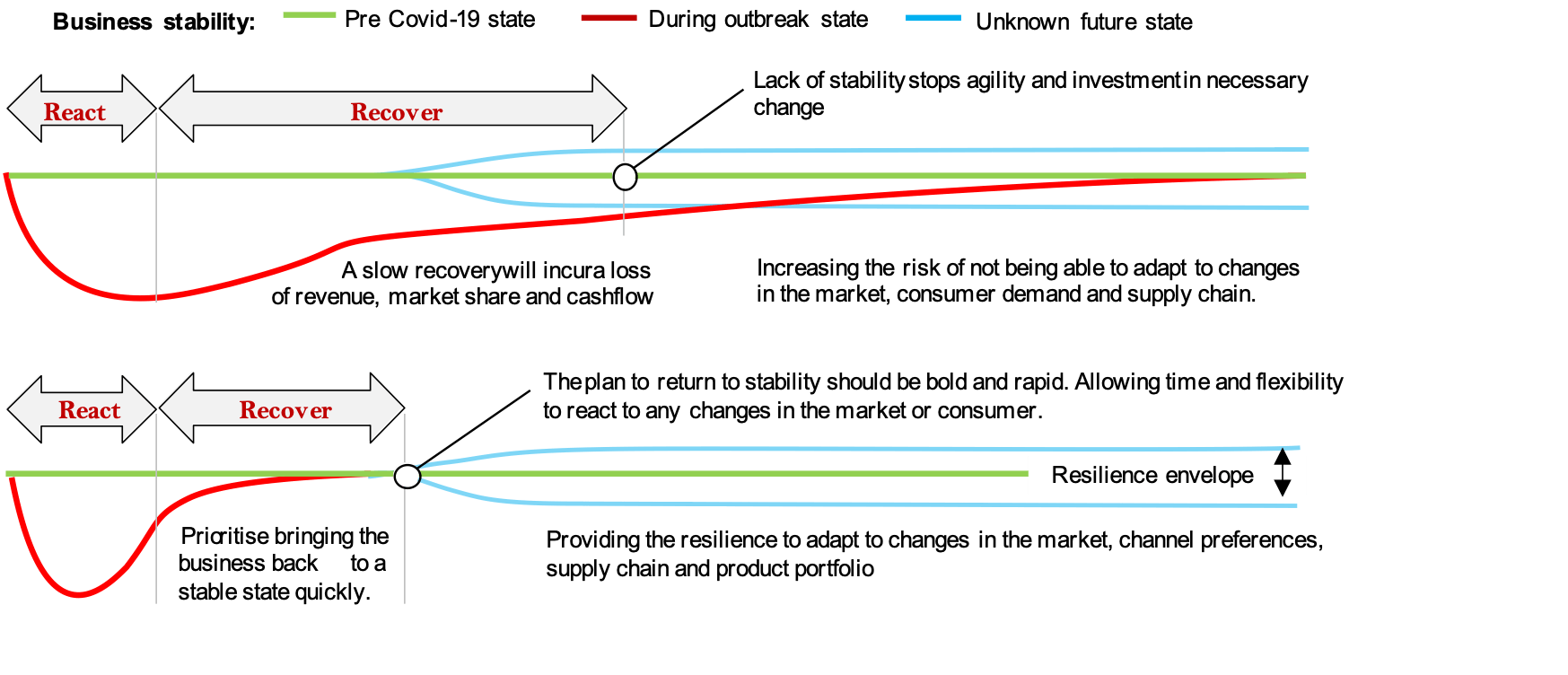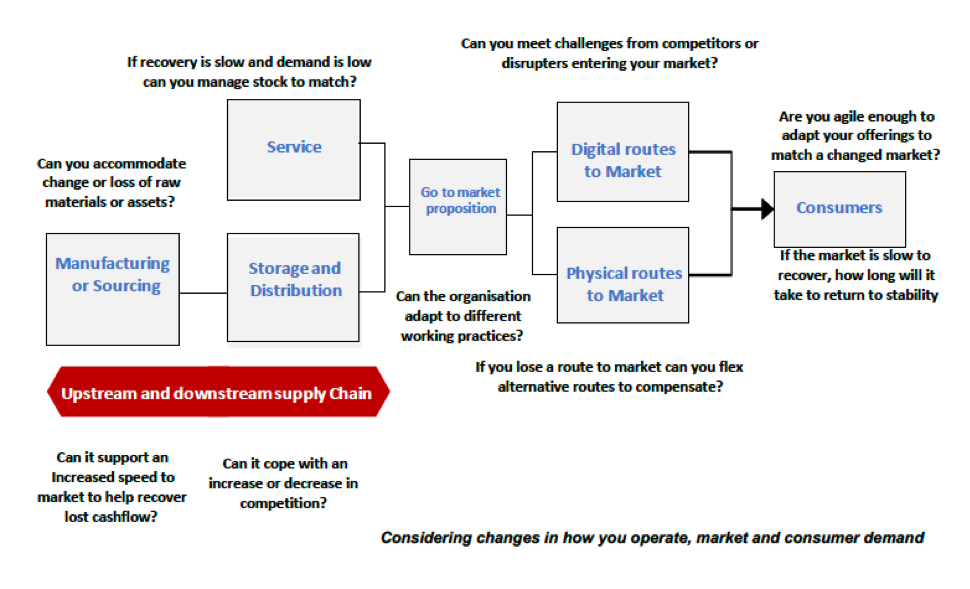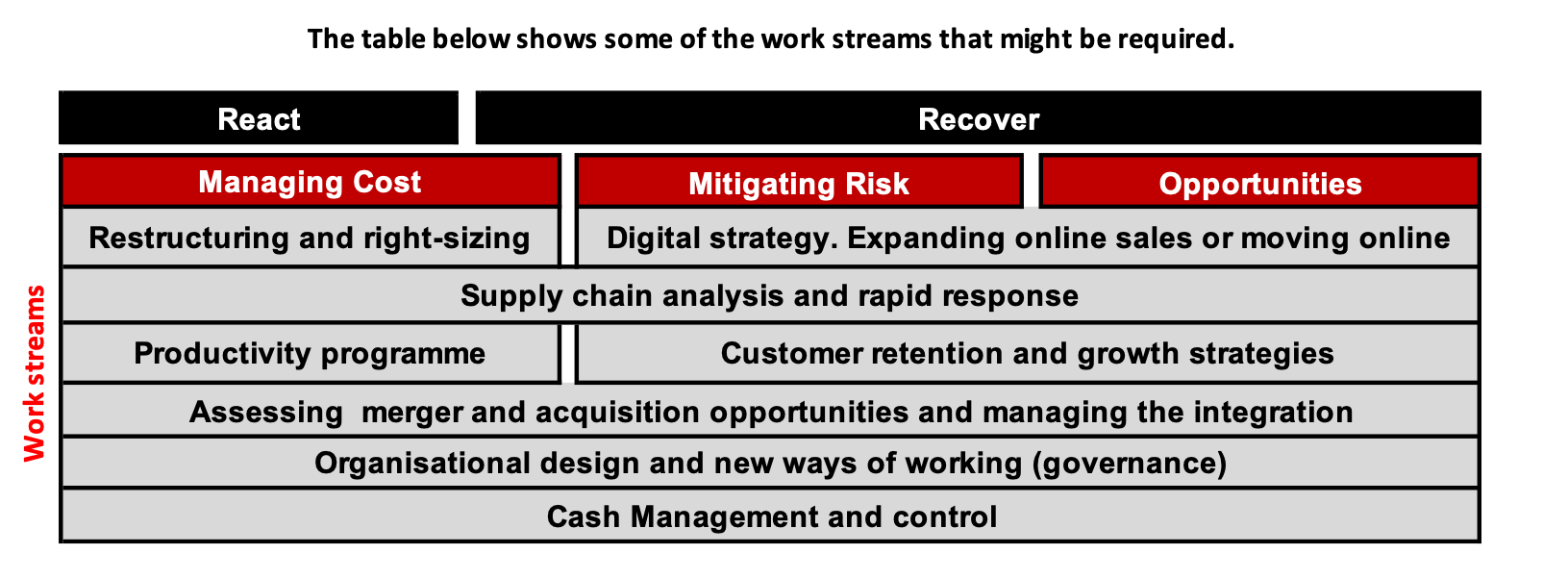Blog Layout
Beyond COVID 19 – Looking to the future and planning ahead for the new normal
DOMINIC PROCTOR • Apr 14, 2020
How resilient and agile are businesses at dealing with the changing landscape?
Pandemics have been on most corporate risk registers since SARS in 2003, reinforced after the Ebola outbreak in 2015. Developments in Infectious disease research enabled the recent SARS and Ebola outbreaks to be contained and by doing so perhaps provided a false sense of security that the risk of future outbreaks would be mitigated. Subsequently did businesses fully consider how their supply chains and routes to market could affect cash and ultimately the resilience of their organisation in the event of a major global Pandemic? In the coming months we will find out just how resilient and agile businesses are at dealing with the changing landscape.
We tend to react, dealing with the immediate here and now. The impact of COVID-19 and the government's policy response has caused businesses to focus on the immediate problems in the box marked 'must deal with now' Current business talk is about survival in terms of how to conserve cash, mothball operations, furlough employees and keep revenue flowing until business 'returns to normal'. But what if the status-quo no longer exists and the 'new normal' is totally different?
Take the hospitality and hotels sector. The majority of hotels are now closed, and will no doubt be looking to open once the current lock down is ended, many believing that an immediate upturn in occupancy levels will occur as normality is restored, but will this actually happen? Business travel may be slow to pick up to its previous volumes impacting on hotel occupancy levels as organisations have learned to adapt in the last month, learning the benefits of hosting remote team meeting through the embracement of digital technology such as Zoom. Such an impact will naturally extend beyond hotels and into its supply chain such as food wholesale and textile laundry providers.

This scenario is not unique to the hospitality and hotels sector. What if future trading conditions in your sector are no longer an extrapolation of the past? What if it is a complete dislocation, a quantum shift? What if the current crisis completely reorders the economy and marketplace as we know it? We all want and need to return to stability, but the underpinnings of future stability may now be very different.
There will be many businesses whose customers will use this enforced hiatus to assess what they buy and from whom. They will be asking which suppliers they really need, like, and want to resume trading with, and if so, on what terms? It's much easier to change supplier when you are not currently using the product or service. Action needed: Carry out a customer retention programme. Start by listening to your customers, review your entire proposition to them, keep in contact with them in the recovery period and assess your supply chain capacity.
Businesses will need to be pro-active as customer behaviour changes in a myriad of other ways. Online methods of doing business will become the preferred option for many more, even those who were previously resistant. Business with an established online presence have been able to offer their customers different options during the last month, many being able to continue to trade during the lockdown and this will result in the acceleration of B2C move away from bricks and mortar and in B2B anyone without a significant online platform will scramble to expand their existing service. This will raise questions about the size and shape of their entire organisation and supply chain. Those who are already strong in online sales will find their space a lot more crowded in a few months' time and will need to respond. Action needed: Immediate review of digital future.
Market shake-ups of this kind tend to lead to a thinning of the herd, especially in sectors that suffer from poor cash flow. As Warren Buffet said, “ only when the tide goes out do you discover who has been swimming naked”. This will create opportunities for the survivors to capture additional share, either directly or through mergers and acquisitions, leading to the well-known challenges of successfully absorbing acquired or merged businesses. Action needed: Scope opportunities to grow the top-line profitably and understand the organisational redesign changes needed to support that growth.
As the demand for executives' time and focus increases, they could look to engage with specialist support in the short term and interims are ideally placed to support this endeavour. Interims have the gravitas as they have all held senior business management positions along with being comfortable dealing with uncertainty. They are able to be parachuted into the organisation to support with the required restructuring and transformation, and once their job is completed, they can exit without being a burden to fixed costs. An interim is able to engage with stakeholders quickly, helping them to manage costs, mitigate risk and exploit opportunities. They have the expertise and insights at the right point in decision making or implementation enabling you and your organisation to shorten the recovery period and get to your 'new normal' more quickly.
Conclusion
The business landscape is without doubt changing and now is the time that organisation need to be planning for the recovery so that they are able to mitigate risks and maximise opportunities to retain and grow their market share. A changing landscape is inevitable and those businesses who are open minded and agile, will be able to get on the front foot so that they can adapt and thrive in the new “normal”
Bio
Dominic Proctor is the Managing Director of Matrix which provide Interim or Consultancy project support for Industrial Manufacturing and Logistics organisations to achieve breakthrough growth for their businesses through the development of Operational Excellence and transformation change. Dominic has 30 years of supply chain and operational leadership experience in Industrial Manufacturing (Berendsen & Johnson Service Group) and Wholesale Distribution (Bunzl & Rexel). He is passionate about supporting organisations to achieve commercial success through his knowledge and track record of leading successful restructure programmes, launching new digital channels, designing operational efficiency, developing customer retention strategies and managing successful M&A integrations. If you like to discuss a potential Interim or consultancy assignment you can contact Dominic for an informal discussion at dominic.proctor@matrix.org.uk
CONTACT DETAILS
Matrix Coaching & Development Ltd
Lower Laithe Farm
Newsholme New Road
Oakworth
West Yorkshire
BD22 0QU
07969 102 755
info@matrix.org.uk
COMPANY INFORMATION
Registered in England & Wales.
Company number: 09065526
Directors: Dominic Proctor and Liz Proctor.
M: 07969 102 755


